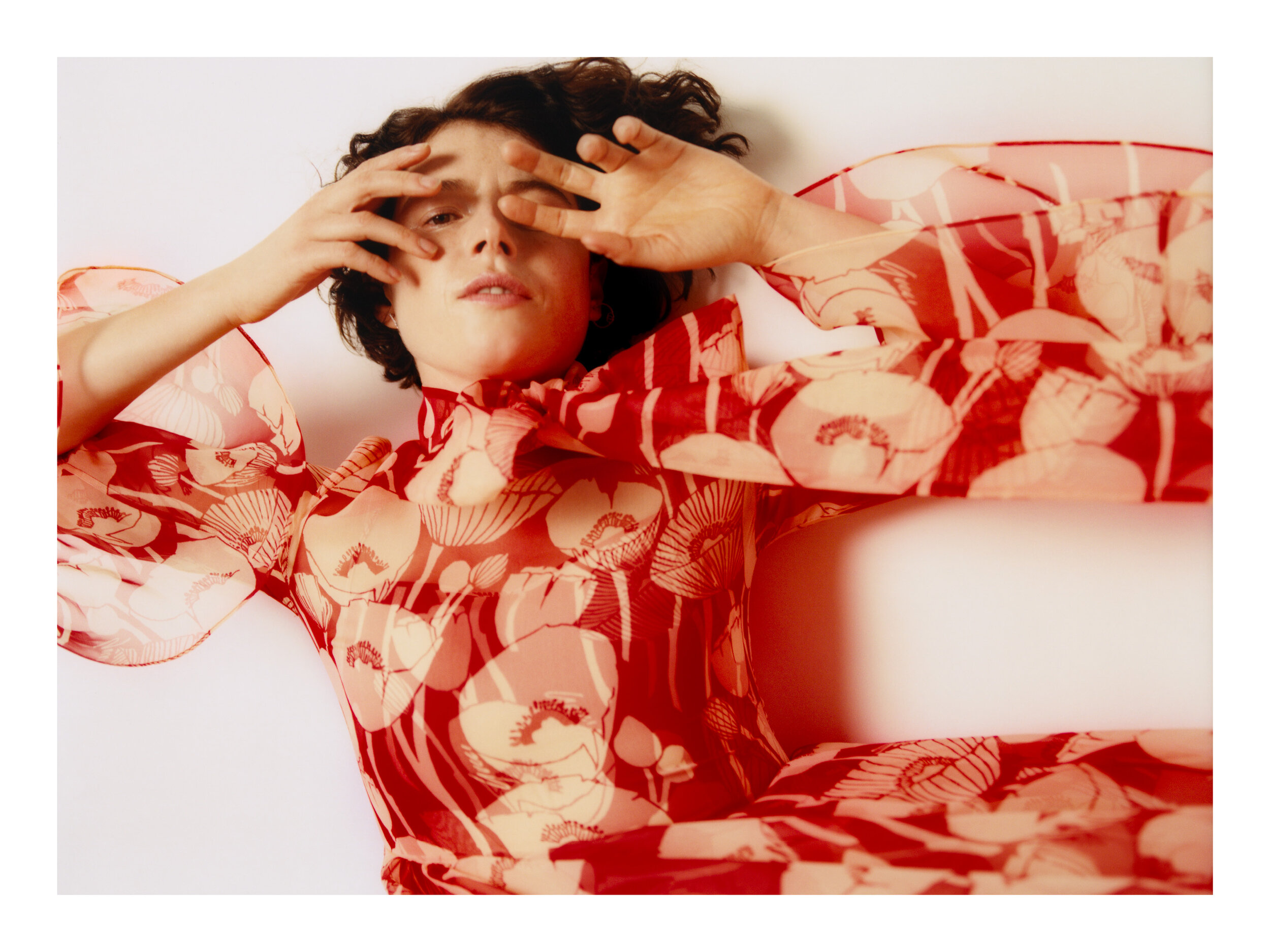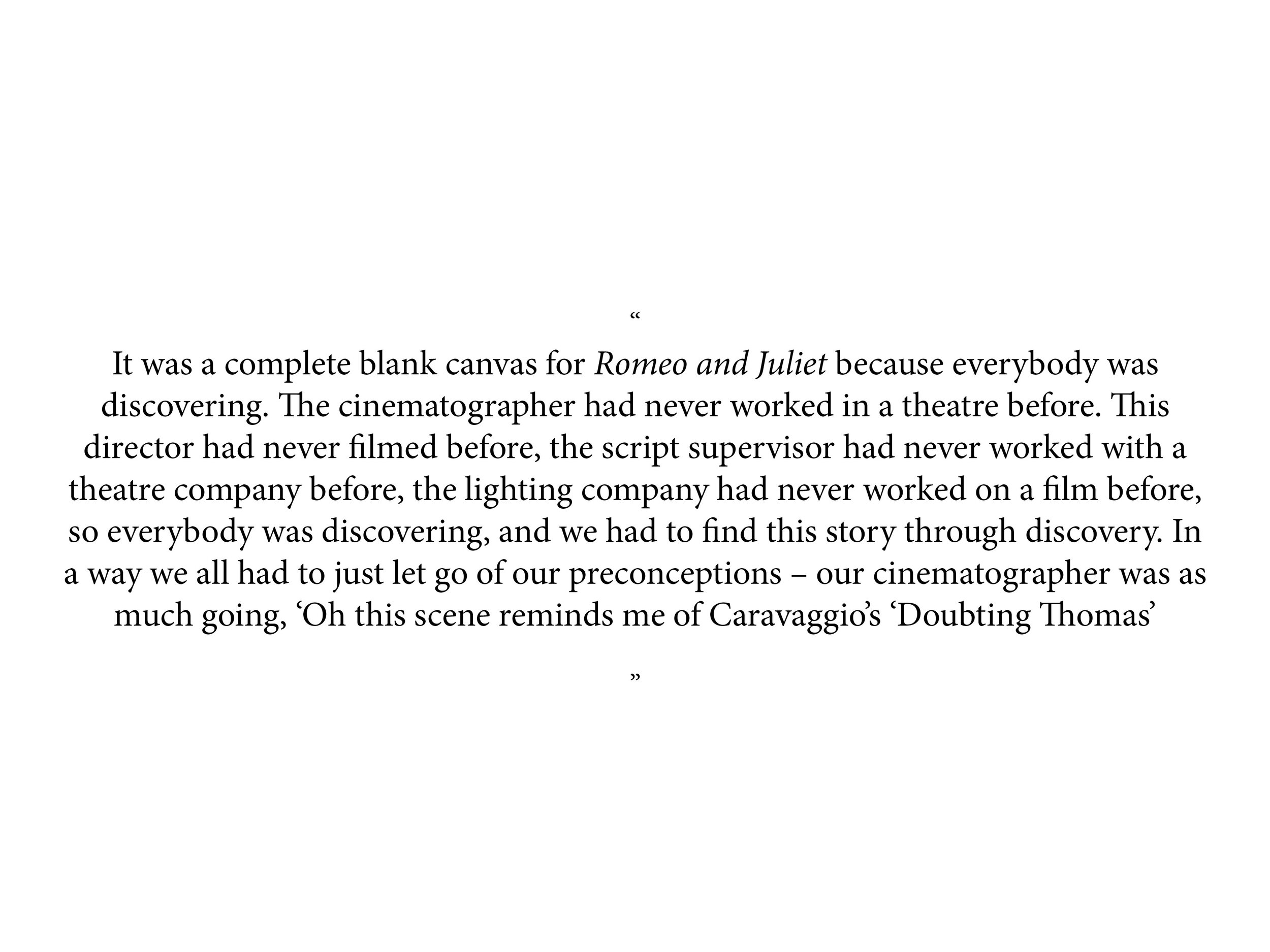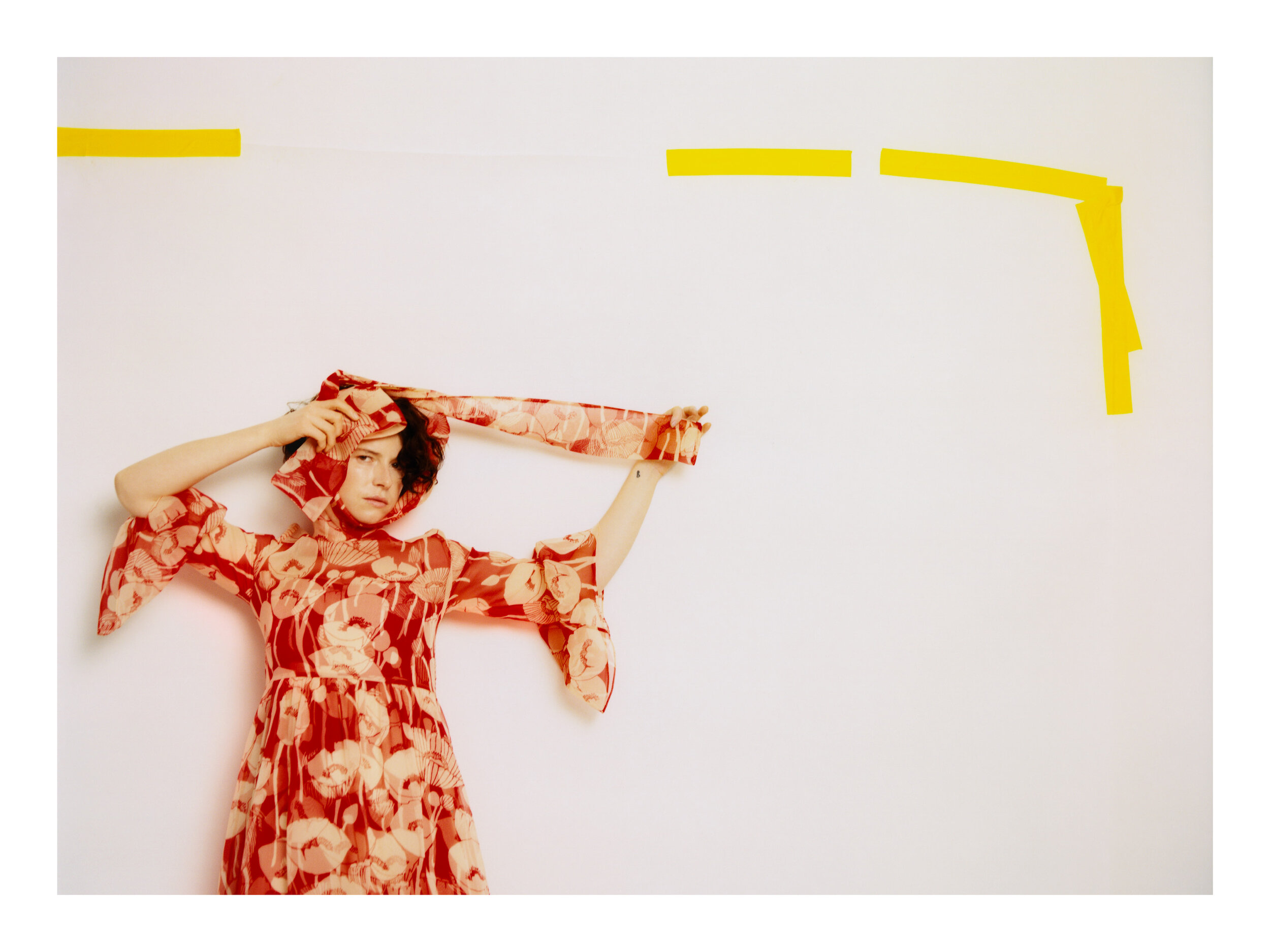MG: I was thinking about watching this. A great love story obviously. I remember somebody saying to me, somebody who I really think is wise. I was acting in something and I was trying to create a real intimacy between me and this guy I was supposed to be in love with and it just didn’t work unless we had it. I did not want to sleep with them and I didn’t want to break any boundaries, not interested at all, but I wanted there to be real love and desire between us, and I was freaking him out. And I was thinking about this and OK I don’t want to freak him out because, of course, if you trust the person you’re working with, there’s an opportunity to actually create love, actually create desire and some stories only work if there’s actual love and actual desire between the people working on them.
JB: Hmmmm!
MG: But there’s all different ways of working, there’s some people who don’t feel that way at all. There’s some people that think that’s too dangerous and there has to be a kind of artifice and obviously I completely understand. But I have a feeling that you’re like me so wondering how, how, it’s a very difficult question, in fact. You started to answer it, like you guys are sending music back and forth, starting to create a relationship, I mean how do you create a relationship like that?
JB: Well, Josh and I have known each other for about thirteen years. I met him through a friend. He was doing a play. He lived quite close to me at one point. We always really got on. At one point, we were like: let’s go move by the sea and set up a hippy commune with all these artist people and I’ve just always, always loved him in the core – one of those people you go: I get it, I get you, I love you, you’re my brother, you’re my friend.
MG: I thought he was so, so good.
JB: Isn’t he amazing?
MG: I really did. I thought he was wonderful.
JB: He’s such a beautiful man and he’s a really…I don’t know, he’s a rare man. He’s just a beautiful, beautiful man, and so, I don’t know, I guess you were quite lucky that a lot of that intimacy was already there. I know because of the kind of actor that he is and he knows, because of knowing me, it’s like let’s go for it, like let’s just jump off the cliff.
MG: This is what separates the women from the girls.
(Laughter)
MG: Just have to say, look, everyone does it their own way but in my way, let’s jump off the cliff.
JB: Yeah.
MG: Like, I’m safe, don’t worry, I’m safe.
JB: Oh yeah and I totally think you can. Like you said, love is lots of different shapes. You can hate somebody and love them or you can try to pick out all the little things in it. For me, I would feel cheated. I would feel I’d cheated myself, I’d have cheated him with me or lack of me and it’s fun. Like you know your boundaries. It’s what we do, like what’s the point if you don’t. If you’re trying to tell a story about love, fall in love. Leave yourself outside, it’s not you it’s the story that’s the most important thing.
MG: But then again and this is a sort of topic change in a way, but after I watched Romeo and Juliet I was thinking about you and The Lost Daughter and I was sort of thinking it’s all you, you know, I mean it is, it’s YOU, at least I certainly feel like for me often roles that come to me, things that I call to me are because there’s something in them I need to work out.
MG: There’s something in there that got me. So, in a way, it is all you, I think, when I watch it I relate to that. And I was thinking about, like, Leda (Jessie’s character in The Lost Daughter) and Juliet had a party together.
JB: (Laughing)
MG: I don’t know, they’re so different. I’ve been watching you every day. And Juliet really seems young to me, she was, like, fourteen or something, you know, even though she seems much younger than Leda.
JB: Maybe that’s love. I didn’t play her young. I didn’t even bother myself with that whole thing. It wasn’t important to me.
MG: But she does seem young, she does.
JB: Yeah.
MG: For Leda, for example, I feel like there’s forty different things going in opposite directions, and so it’s hard to move like really clearly in one direction, you know? With Juliet it’s like she’s on that path…like on a tidal wave, just riding it. That’s a littler younger. Isn’t it??
JB: Well, I guess, with Juliet she’s been sheltered in a way, like that film, what’s it called? Yorgos Lanthimos film, Dogma?
MG: Oh, right.
JB: Dogtooth, Dogtooth, Dogtooth! Have you seen it?
MG: I have a really strong sense of the flavour, but, no, I haven’t seen it.
(Laughter)
JB: In that film, their father is kind of cocooning them at a certain age of their life and I thought, actually that’s much more interesting for Juliet. What happened? What if the story became that, like, she’s my age, thirty-one, but at fourteen her life was stopped and it retains the potential of life from fourteen and what kind of tension contained in her up until thirty-one and how is that then lived once that is lanced out of her?
MG: That’s interesting. No, I don’t think there’s any real reason to focus on like a linear kind of age. I’ve definitely played people and told myself, like, she’s ninety-eight in the scene and…
JB: How?
MG: How? And that’s not the circumstances at all but I just think it’s fine. I don’t mean it in a literal way but I felt she was younger. I felt, she was like I said, focused in a way. All the different diverging branches of other ideas. She’s super smart and you can follow her complicated mind but she’s so driven in one direction. It did remind me of Ramona, who’s fourteen.
JB: Yeah, good. How did Ramona feel watching it?
MG: I mean truly she and I were yelling at the screen. Don’t take it! I mean I’d read the play, seen it before, I obviously knew what was going to happen. I think it was amazing for her to see it. She’s fourteen – she’s just entering into this part of her life.












